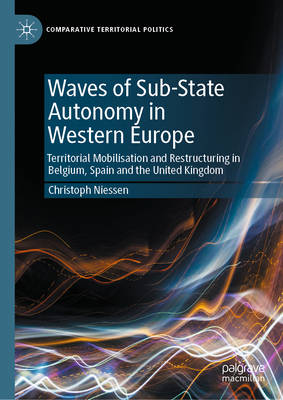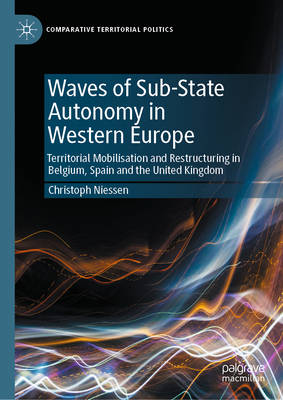
- Afhalen na 1 uur in een winkel met voorraad
- In januari gratis thuislevering in België
- Ruim aanbod met 7 miljoen producten
- Afhalen na 1 uur in een winkel met voorraad
- In januari gratis thuislevering in België
- Ruim aanbod met 7 miljoen producten
Waves of Sub-State Autonomy in Western Europe
Territorial Mobilisation and Restructuring in Belgium, Spain and the United Kingdom
Christoph NiessenOmschrijving
In response to the puzzling variety of types and degrees of sub-state autonomy that are demanded within sub-state entities and that are granted by states all around the world, this book provides a systematic comparison of the conditions under which sub-state autonomy has been demanded and under which it has been granted in three typical countries undergoing centrifugal sociological decentralization: Belgium, Spain and the United Kingdom. To do so, the book draws on an analytical framework that studies the evolution sub-state autonomy demands and statutes jointly, that assesses sub-state autonomy in kind, in degree and by competences, that relates the evolutions to factors from the five main theoretical strands of the field, and that does so based on original data collected in 31 sub-state communities within the three countries between 1801 and 2020. The findings of the analyses are illustrated through the metaphor of 'waves' of sub-state autonomy and articulated around a dual constellational theory of centrifugal sociological decentralisation. It is constellational in that it explains sub-state mobilisation and restructuring as driven by the interplay of factors from different theoretical strands. It is dual in that it shows sub-state autonomy dynamics to unfold differently in two main types of entities: sub-state communities with strong sociological distinctiveness and historical political grievances (e.g. Flanders, Catalonia or Scotland), and sub-state communities with weaker sociological distinctiveness and historical political grievances (e.g. Wallonia, Asturias or Cornwall).
Specificaties
Betrokkenen
- Auteur(s):
- Uitgeverij:
Inhoud
- Aantal bladzijden:
- 212
- Taal:
- Engels
- Reeks:
Eigenschappen
- Productcode (EAN):
- 9783031925665
- Verschijningsdatum:
- 16/11/2025
- Uitvoering:
- Hardcover
- Formaat:
- Genaaid
- Afmetingen:
- 148 mm x 210 mm
- Gewicht:
- 426 g

Alleen bij Standaard Boekhandel
Beoordelingen
We publiceren alleen reviews die voldoen aan de voorwaarden voor reviews. Bekijk onze voorwaarden voor reviews.









